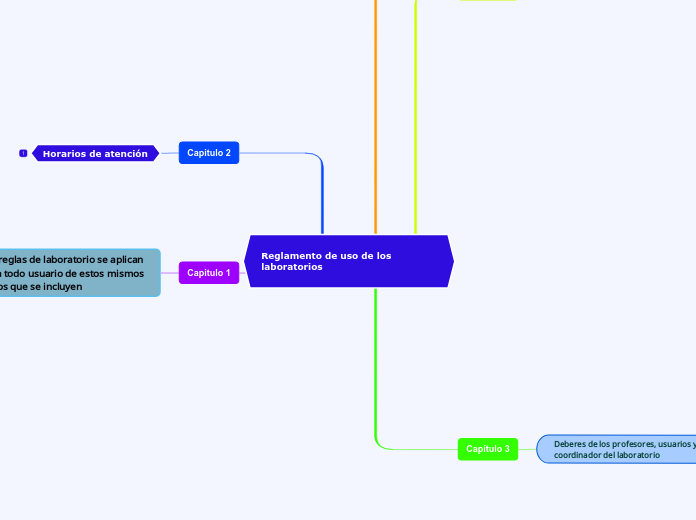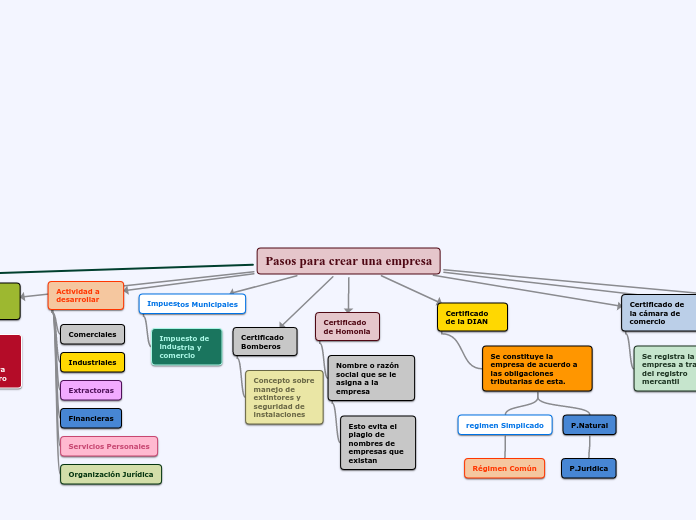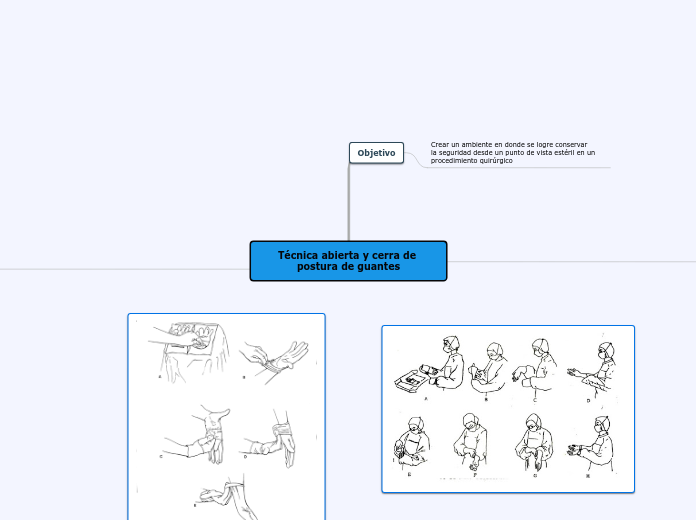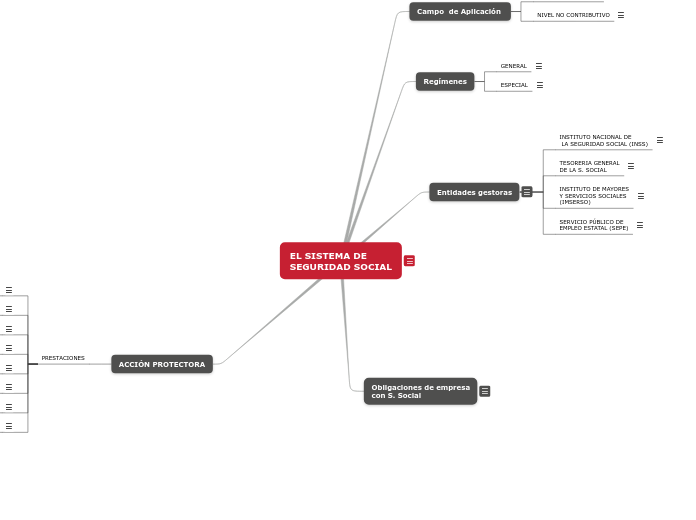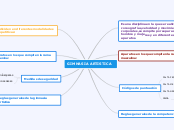Reglamento de uso de los laboratorios
The part of speech is a category to which a word is assigned according to its syntactic functions. In English the main parts of speech are noun, pronoun, adjective, determiner, verb, adverb, preposition, conjunction, and interjection.
Capitulo 1
An interjection is used to express emotion in a sentence.
Think of other interjections!
Las reglas de laboratorio se aplican para todo usuario de estos mismos en los que se incluyen
Las personas naturales, empresas o instituciones educativas que tengan convenio con la universidad o que contraten el servicio.
Los egresados que desarrollen trabajos de investigación, innovación o emprendimientos y que suscriban contrato con la universidad
Los estudiantes que están realizando tesis o trabajo de grado
Las unidades académicas o administrativas de la universidad para el complimiento de sus tareas misionales
Docentes de la universidad adscritos a cualquier unidad académica que requieran el uso de los laboratorios
alumnos matriculados en los diferentes programas académicos
Capitulo 2
An adverb is used to describe a verb, but it can also describe an adjective or another adverb.
Adverbs normally help paint a fuller picture by describing how something happens.
Horarios de atención
El horario de atención está definido de conformidad con la jornada laboral de la universidad, las actividades académicas y de investigación establecen horarios dentro de las primeras dos semanas de cada periodo académico.
Capítulo 3
A numeral is a word or phrase that describes a numerical quantity.
Some theories of grammar use the word 'numeral' to refer to cardinal numbers that act as a determiner to specify the quantity of a noun, for example the 'two' in 'two hats'.
Deberes de los profesores, usuarios y del coordinador del laboratorio
Deberes
Evitar ingresar cualquier tipo de vehículos al laboratorio
Dar cumplimiento a las instrucciones del profesor o persona responsable
Ser proactivo para la mitigación de riesgos
Mantener el orden y la disciplina
Al terminar la actividad se debe entregarlos equipos al responsable del laboratorio
El uso de equipos es reservado para quienes hayan mostrado competencia para tal actividad
Conocer y acatar los controles definidos en la matriz de peligros y riesgos
Dar aviso si posee alguna condición especial de salud
Abstenerse de ingresar a espacios no autorizados
Respetar los procedimientos establecidos para el laboratorio
Entregar la información de forma clara, completa y oportuna sobre lo que se necesita para desarrollar la actividad
Mantener el orden y la limpieza del laboratorio
Adquirir los elementos de protección personal básicos y usarlos según la actividad a realizar
Tener al día el carné de vacunación para los espacios donde existan riesgos biológicos
Reponer equipo o material dañado por el mal uso dentro de las dos semanas siguientes al evento
Recibir y revisar el inventario que se le entregará al inicio del trabajo experimental y avisar dentro de los primeros 15 minutos cualquier irregularidad
Presentar el carné o documento de identidad cuando algún funcionario lo requiera
Presentar póliza estudiantil
Debe utilizar bata anti fluidos debidamente abrochada, cabello recogido, zapatos cerrados, gafas de seguridad y guantes para el manejo de productos tóxicos o cáusticos
Guardar las chaquetas, bufandas, abrigos, collares u objetos personales para evitar accidentes.
Acatar las normas establecidas en el reglamento
Derechos
Presentar quejas, reclamos o sugerencias para el mejoramiento del servicio
Solicitar los certificados de paz y salvo cuando se requieran
Disponer de las instalaciones físicas en condiciones adecuadas
Disponer oportunamente de los equipos e insumos correspondientes
Solicitar los implementos de seguridad especializados para realizar actividades
Recibir la información adecuada sobre las normas de seguridad
Recibir la capacitación adecuada para operar correctamente los equipos e instrumentos del laboratorio
recibir información oportuna de los servicios y recursos que ofrecen los laboratorios
Capítulo 7
An adjective is a word that's used to describe a specific noun and to provide more detail to the listener.
Sanciones
Expresses a comparison between two entities or groups of entities in quality or degree.
El incumplimiento a los deberes consagrados en el reglamento estará sujeto a sanciones definidas en los reglamentos vigentes de la universidad, dependiendo del caso
Capítulo 4
A pronoun is a word that can be used in place of a noun, typically after the noun itself has already been stated.
Evitar trabajar sin los elementos de protección personal
Evitar trabajar sin supervisión del docente encargado o personal de laboratorio
Evitar la manipulación de equipos distintos a los asignados para la actividad
Evitar ingerir comidas, bebidas y fumar en los laboratorios
En caso de accidente, se debe de comunicar a la línea segura y emergencias
Unlike demonstrative pronouns, which point out specific items, indefinite pronouns are used for non-specific things. This is the largest group of pronouns. All, some, any, several, anyone, nobody, each, both, few, either, none, one, and no one are the most common.
Los procedimientos deben de ser realizados con cuidado
Relative pronouns are used to add more information to a sentence. Which, that, who (including whom and whose), and where are all relative pronouns.
No utilizar ningún equipo sin el conocimiento sobre su uso
Interrogative pronouns are used in questions. Although they are classified as pronouns, it is not easy to see how they replace nouns. Who, which, what, where, and how are all interrogative pronouns.
Se deben apagar los equipos al finalizar la labor en el laboratorio
Reciprocal pronouns are used for actions or feelings that are reciprocated. The reciprocal pronouns are each other and one another.
Se debe mantener el orden y aseo
A reflexive pronoun ends with ...self or ...selves and refers to another noun or pronoun in the sentence (usually the subject of the sentence). The reflexive pronouns are myself, yourself, herself, himself, itself, ourselves, yourselves, and themselves.
Los usuarios deben revisar que las sustancias que se le sean entregadas estén debidamente rotuladas y etiquetadas en los frascos que cumplan con la normatividad
Demonstrative pronouns are used to demonstrate (or indicate). This, that, these, and those are all demonstrative pronouns.
Si ocurre un derrame de un producto químico, debe dar aviso al docente encargado o al personal de laboratorio
Possessive pronouns are used to show possession. The possessive pronouns are mine, yours, his, hers, ours, and theirs.
Toda persona al usar el laboratorio por primera vez, será informada sobre las normas y el uso y funcionamiento de los laboratorios, las normas de seguridad y los procedimientos de los ensayos a efectuar
The personal pronouns are I, you, he, she, it, we, they. More often than not (but certainly not always), they replace nouns representing people.
